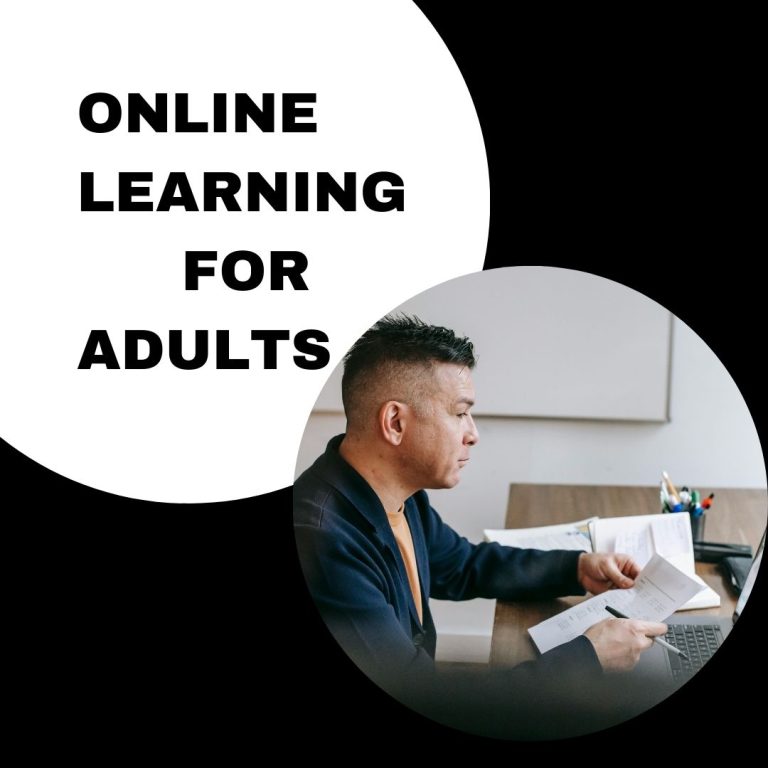Is an Online Education Degree Worth It? Unveil the Truth!
An online education degree can hold significant value, depending on your career goals and the program’s accreditation. Its flexibility and affordability often make it an attractive option for students.
Earning a degree online has become increasingly popular, providing accessible education to those balancing work, family, and studies. Accredited online degrees are now widely recognized by employers and can be just as reputable as their on-campus counterparts. This educational path suits self-disciplined individuals seeking advancement or a career change without the constraints of a traditional classroom.
Online programs can offer substantial savings on things like commuting, housing, and certain fees that are typical of brick-and-mortar institutions. Thus, making an informed choice about pursuing an online education degree hinges on personal circumstances and professional objectives. With the right program, an online degree can certainly be a worthy investment in your future.

The Rise Of Online Education Degrees
Online education degrees have taken the world by storm. The digital age brings learning to the comfort of your home.
This rise is a game-changer. It allows many people to upskill without pausing their careers. Flexibility and accessibility make online degrees popular. Let’s consider the impact this shift has on higher education.
You May Also Read: PhD Math Education Online
A Shift In Higher Education
The landscape of higher education evolves. Traditional campuses are now sharing the stage with virtual classrooms. This shift opens doors for students worldwide. Now, more students can balance work, family, and study. The new model provides personalized pacing and scheduling.
- Global access: No matter where you live, education is a click away.
- Cost-effective options: Reduced expenses compared to campus life.
- Technologically enriched: Online programs often use cutting-edge tools.
Comparing Traditional Vs. Online Learning
Comparing traditional and online learning helps in decision-making.
| Traditional Learning | Online Learning |
|---|---|
| Scheduled classes at fixed locations | Learn from anywhere, anytime |
| Frequent interaction with peers and professors | Virtual interactions through forums and chats |
| Set timeline for course completion | Self-paced learning options |
| Added costs for commuting, housing | No commute, study from home |
In summary, each learning style has its merits. Your choice may depend on your lifestyle, learning preference, and career goals.
While considering an online education degree, assess the value and recognition of the course. Ensure it aligns with your future aspirations.
Decoding The Value Of Online Degrees
As the world shifts digitally, education follows. Online degrees are now a staple in professional advancement options. People often wonder about their worth. Let’s explore the real value of these qualifications.
You May Also Read: Educational Psychology PhD Online
Market Perception Of Online Qualifications
The digital transformation has reshaped education’s landscape. Market perception of online degrees is a hot topic. Once considered less prestigious, online qualifications have gained considerable respect. This shift is due to the rigorous academic standards many online programs now boast. Employers also recognize the dedication and time management skills required to succeed in an online environment.
- Improved Credibility: Accredited online programs match their on-campus counterparts in quality.
- Adaptability: Employers value graduates who can adapt to new technologies and working conditions.
Employability: Online Graduates In The Workforce
Employability is crucial. Online graduates are proving themselves in the workforce. They bring with them a unique set of skills forged in virtual classrooms.
| Skill | Advantage in the Workforce |
|---|---|
| Technology Proficiency | Comfort with digital tools and platforms |
| Self-Motivation | Independence and drive to complete tasks |
| Time Management | Efficiency in handling multiple responsibilities |
| Communication | Effective digital and remote interaction |
Statistics support online graduate success. Many have secured prominent positions. Their skills align well with modern job requirements. Employers actively seek such candidates.
Analyzing The Costs And Benefits
Choosing an online education degree is a big decision. It’s important to weigh the costs against the benefits. This section will dive into what you need to consider financially and how this mode of study balances with your lifestyle.
Breaking Down The Financial Investment
Understanding the money involved with an online degree is key.
| Expense | Online | On-Campus |
|---|---|---|
| Tuition | Often lower | May be higher |
| Books | E-books, possibly cheaper | Physical books, can be costly |
| Commuting | Not applicable | Gas, parking fees |
| Housing | Stay at home | Dorm or apartment rent |
Tuition is just the beginning. Remember to factor in books, commuting, and housing costs.
Balancing Flexibility And Discipline
An online degree allows you to learn from anywhere. You must be disciplined to keep up with coursework. Let’s explore this balance.
- Flexibility: Study anytime, wearing pajamas if you like.
- Discipline: Set your schedule, meet all deadlines.
- Self-motivation: Stay focused without a classroom setting.
- Access to technology: A reliable computer and internet are a must.
Work at your pace, but keep your eye on the prize. A structured plan ensures success in an otherwise open-ended environment.

Success Stories And Pitfalls
Deciding whether an online education degree is right for you can be tough. It helps to look at both sides of the story. Let’s dive into the tales of success and the common hurdles faced by online learners.
Triumphs Of Online Education Graduates
Many students have reached their goals thanks to online degrees. They balance jobs and study, yet still come out on top.
- Flexible schedules allow learning anytime, anywhere.
- Self-paced learning adjusts to individual speed.
- Students gain valuable digital skills needed for modern careers.
- Many secure jobs before graduating due to the real-world applications of online courses.
| Name | Degree | Current Role |
|---|---|---|
| Emily | BS. in Business Administration | Marketing Manager |
| John | MS. in Data Science | Data Analyst |
Common Challenges And How To Overcome Them
Online education is not without its hurdles. However, strategies exist to jump over these barriers.
Time management is a skill that many online students strive to master. Setting a strict study schedule helps stay on track.
Feeling isolated is common, but joining online study groups and participating in forums can create a sense of community.
Some learners struggle with self-motivation. Regular breaks and setting short-term goals can boost focus and drive.
- Set daily goals and achieve them.
- Use calendar apps to schedule study time.
- Join online learner communities for support.
The Future Prospects Of Online Education
Exploring the future of online education is like peering into a digital crystal ball. It suggests a world of endless possibilities, transformative learning, and unparalleled accessibility.
Technological Advances Impacting Online Learning
The digital age brings cutting-edge technologies that revolutionize how we learn. From Virtual Reality (VR) classrooms to Artificial Intelligence (AI)-driven tutors, these tools are not just sci-fi dreams.
They make learning immersive and personalized. Here’s how tech is shaping the path ahead:
- AI Tutors: Machine learning algorithms powering tutoring that adapts to individual learning styles.
- VR and AR Experiences: Real-world simulations in virtual environments that bring concepts to life.
- Interactive Platforms: Tools that encourage collaboration and engagement among students across the globe.
- Data Analytics: Insight into learning patterns leads to optimized course materials and student support.
Predictions For Online Degrees In The Job Market
Online degrees once faced skepticism. Today, they are essential credentials. The job market recognizes online learning’s robust nature and its capacity to produce skilled professionals.
Future career landscapes show a warm embrace for online education:
| Year | Prediction |
|---|---|
| 2025 | Global corporations seek out online graduates for their digital proficiency. |
| 2030 | Online degrees become equivalent to traditional degrees in employer evaluations. |
| 2035 | Hybrid roles requiring online learning experience rise in demand. |
The credentials from online programs meet the evolving prerequisites of a digitalized job sphere. With the rigors of online coursework being recognized, graduates are seen as self-driven and technologically adept individuals.
Leaders in education and industry predict short courses, micro-degrees, and fully online programs will integrate seamlessly with career development. The stigma fades, opportunities multiply.

Making An Informed Decision
Choosing to pursue an online education degree involves more than just finding a convenient learning platform. It shapes your future career and personal growth. A careful assessment of your aspirations and professional opportunities is critical. The value of an online education degree hinges on aligning it with your life goals and job ambitions.
Evaluating Personal Goals And Career Paths
Each learning journey is unique. Reflect on what drives your passion. Bold true interests to forge a meaningful career. Consider these pointers:
- Assess your interests: Dig deep into what subjects kindle your curiosity.
- Long-term vision: Chart where you see yourself in the next 5 to 10 years.
- Market demands: Align personal goals with real-world needs for a sustainable career.
- Networking potential: Consider if the program will connect you to professionals.
- Work-life balance: Ensure the degree complements your lifestyle and responsibilities.
Steps To Choosing The Right Online Program
Selecting the perfect online degree is much like a strategic mission. Follow these steps:
- Research thoroughly: Start with a broad list of programs and narrow it down.
- Check accreditation: Ensure the institution and program have proper endorsements.
- Compare costs: Understand the financial commitment and seek value for your investment.
- Read student testimonials: Gauge experiences of alumni to forecast your potential journey.
- Review the curriculum: Does it align with your career objectives? Does it offer the latest insights?
- Seek flexibility: Does the program structure fit your schedule while maintaining quality?
- Contact admissions: Address any doubts or inquiries with the admissions office.
Frequently Asked Questions Of Is An Online Education Degree Worth It?
Are Online Teaching Degrees Respected?
Online teaching degrees are gaining respect, especially from accredited institutions. Employers value the flexibility and digital literacy skills that online programs foster in educators.
Do Employers Care If Your Degree Is Online?
Employers typically focus more on accreditation and relevant skills than whether a degree is obtained online. The quality of the online program and its alignment with industry standards can influence their consideration.
Does An Online Degree Have Any Value?
An online degree can hold value, often equating to its on-campus counterpart, especially if it’s from a regionally accredited institution. Employers increasingly recognize the legitimacy of online education.
Are Online Degrees As Good As Regular Degrees?
Online degrees can be as reputable as traditional degrees, providing they’re from accredited institutions. Employers increasingly recognize their value, equating them with in-person education when assessing candidates’ qualifications.
Conclusion
Navigating the sphere of online education can be daunting. Yet, the value of such a degree hinges on individual goals and chosen fields. It blends flexibility with a diverse course selection, often at a lower cost than traditional education. Carefully weigh the pros against any limitations.
With the right program, an online education degree can indeed unlock doors, fostering personal and professional growth.







